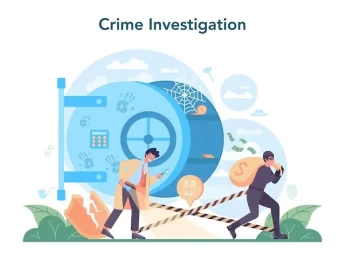Developing a successful recruitment process is essential for any organisation. Any recruitment or HR professional will need to consider a well-structured recruitment process that targets individuals who are highly qualified candidates for each role and ensures all required experience is covered.
It is also the interviewer's responsibility to ask the right questions to determine the best possible candidate and work on talent management to not only place the right people in their perfect roles but also look towards the future to help the company develop its people internally and maintain knowledge and skills.
Recruitment is one of the most important processes in creating a successful department. It helps to find people who are motivated by the job role and can stand the test of time. However, the recruitment process can be costly and time-consuming, so it’s best to get the right people for the job the first time around.
Recruitment isn’t just about finding the right people for your role. It’s also a chance for your business to advertise itself. What can you offer the candidates to make it a good opportunity for them?
Upon completion of this course, participants will be able to:
- Understand the most effective process to achieve the best outcome within your organisation.
- Understand the best tools and techniques to find candidates for any role.
- Explore psychometric analysis to discover the best techniques to find the right personality types.
- Manage multiple roles through a single recruitment campaign.
- Use data to understand which answers most suit your campaign requirements.
- Develop effective assessment days to form an in-depth analysis of each candidate.
- Differentiate between good and excellent candidates to aid your talent management.
- Understand the benefits of an excellent recruitment process within your organisation.
This course is designed for anyone responsible for recruitment or updating the recruitment process within an organisation. It would be most beneficial for:
- HR Professionals
- Recruitment Personnel
- HR Managers
- Team Managers
- Operations Managers
- Administrators
- Project Coordinators
This course uses various adult learning techniques to aid full understanding and comprehension. Participants will discover critical tools and techniques to help uncover the very best recruits for each position.
They’ll undergo their own assessment day to discover which techniques work. They'll participate in role-playing exercises to uncover great interview techniques that get the best out of candidates. Group discussions and activities will also help participants use data and develop effective talent management techniques to future-proof internal business strategies.
Day 5 of each course is reserved for a Q&A session, which may occur off-site. For 10-day courses, this also applies to day 10
Section 1: Recruitment Tools & Techniques
- Your recruitment objectives.
- Creating a valuable job description.
- What skills does the ideal candidate need?
- Reviewing a personal specification.
- Selecting the right tools for the job.
Section 2: Interview Techniques & Making Effective Decisions
- Creating some outside-of-the-box interview questions.
- Strengths and weaknesses and how to judge them.
- Common mistakes and assumptions.
- How to avoid awkward silences.
- Interviewing practice.
- What to do to introduce your company.
- Removing bias from the interview process.
Section 3: The Assessment Day Structure
- What is an assessment day for?
- Setting out your assessment objectives.
- Perfect assessment activities to gain accurate data.
- How personalities manifest within a group.
- Different activities to assess your required strengths.
- Noting weaker areas and asking questions later.
Section 4: Your Psychometric Analysis
- How do personal profile tests work?
- Differentiating between personality and ability.
- OPQ32 and motivation questionnaires.
- Feedback techniques using personality instruments.
- Your development project outline.
- Learning logs to develop your assessment over time.
Section 5: Normalising the Results of Your Psychometric Testing
- Developing accessible results data.
- Assessing the reliability, validity and security of interview data.
- Norm tables and your duty of care.
- Measuring against your competency framework.
- Restructuring your recruitment procedures.
Section 6: Assessing Data, Results & Working on Talent Management
- Online tools and techniques.
- How to find the right people for the job – recruiting a recruiter.
- Your resource and FTE counter.
- Where can skills be delegated?
- Removing single point of contact risks.
- The ongoing development of your talent pool.
- Auditing your assessment and interview processes.
Upon successful completion of this training course, delegates will be awarded a Holistique Training Certificate of Completion. For those who attend and complete the online training course, a Holistique Training e-Certificate will be provided.
Holistique Training Certificates are accredited by the British Assessment Council (BAC) and The CPD Certification Service (CPD), and are certified under ISO 9001, ISO 21001, and ISO 29993 standards.
CPD credits for this course are granted by our Certificates and will be reflected on the Holistique Training Certificate of Completion. In accordance with the standards of The CPD Certification Service, one CPD credit is awarded per hour of course attendance. A maximum of 50 CPD credits can be claimed for any single course we currently offer.
- Course Code PH1-112
- Course Format Classroom, Online,
- Duration 5 days













